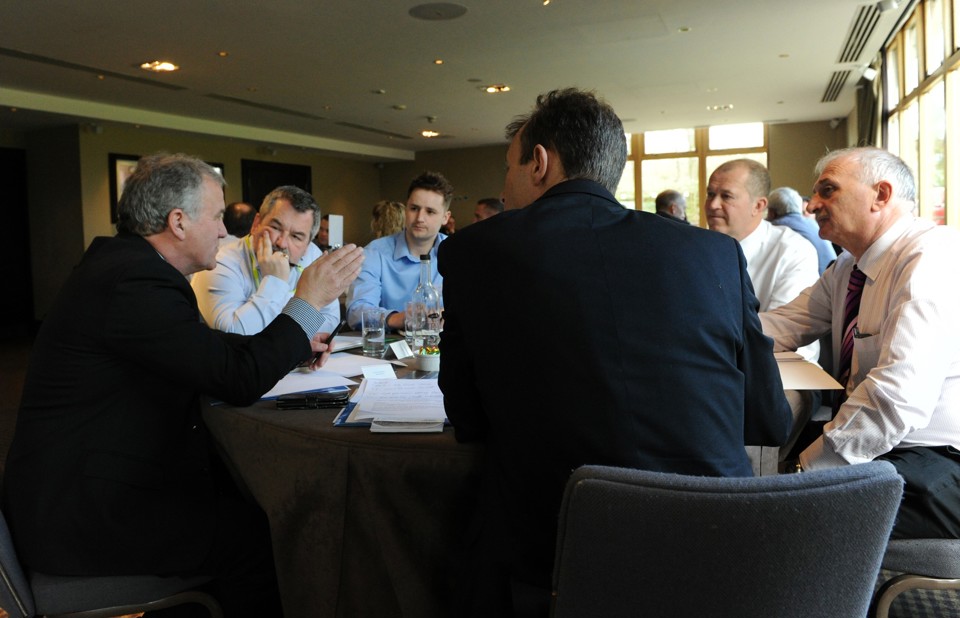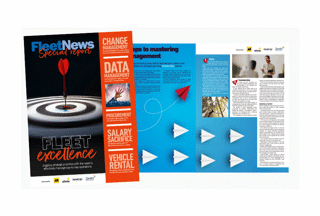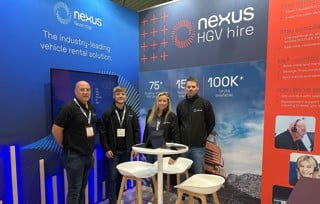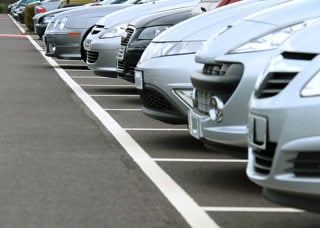Brexit chaos, the suitability of FORS and challenges around WLTP and salary sacrifice are the diverse range of issues fleet decision-makers are currently concerned with.
At the March Fleet200 Executive Club meeting managers from a range of sectors, from insurance to freight delivery, shared their worries – and their solutions. Here are the highlights from the roundtable discussion.
Legislative and political uncertainty
The two factors has lead to a lack of confidence in making policy and strategic decisions due to Brexit confusion, a lack of clarity on tax rates and WLTP means risk averse companies left in stasis.
- “Decision making on policies, systems purchasing, supply chain issues – and even seemingly simple questions like ‘where do we get our tyres from?’ has been affected.”
- “We’re a Renault fleet and post-Brexit we’re looking to switch to Vauxhall as the vehicles will be made in Luton and we want to avoid the potential impact of import tariffs on costs.”
- “Two years ago we pressed pause on everything due to OpRA.” The Optional Remuneration Arrangement rules took effect from April 2017 due to HMRC concerns about loss of tax and NIC revenue due to the increasing use of salary sacrifice. “We extended vehicles and stopped taking on new vehicles. But after 12 – 18 months the increased costs and management demands became unsustainable. We carried out funding analysis and found ECOS – and the credit sale arrangements - still work for us, mitigating some of the impact of moving to cash, or contract hire/purchase/lease. We relaunched the ECOS scheme so it is in line with OpRA. Future proofing of the scheme and where we go next with it is still unanswered.”
WLTP (Worldwide harmonised Light vehicle Test Procedure)
- “To cope with the turbulence of WLTP with our 300 company cars and 50 grey fleet vehicles, we stopped using effective rental and went to wholelife cost model to understand the true cost of a vehicle to the business.
"We had cars in a band for junior/middle managers where the rental cost was more than directors’ cars.
"Now drivers get a cash allowance. The scheme is quite draconian – we don’t allow drivers to choose options. They get to choose the exterior and interior colour. The cost to the business is clear, sustainable and you can forecast on wholelife costs with confidence."
- "There is still confusion on WLTP/CO2 levels and from what I can see most CO2 levels on fleets have increased."
FORS
- “Clients are asking us to get FORS accreditation. We’re a small fleet, managed by a small team, and already have a lot of ISOs and BS OHSAS standards for occupational health and safety, and FORS seems a challenge. How should I judge it?”
- “We’re FORS accredited and have been for some time. There are a lot of overlapping schemes, but you will find there are more and more contractual tie-ins with FORS. You will be discounted if you do not have the accreditation.”
- “Look at FORS as a best practise scheme. Consider what you do over and above the required standard and formalise the processes. Then it’s critical to sustain and maintain them to ensure accreditation.”
- “Initially get someone who has experience of FORS – or a consultant – to identify what you need to do or where you’re falling short.”
- “FORS standards are updated quite regularly so ensuring you maintain your standards is important.”
- “Get buy-in from the highest level in your organisation because whatever the scheme your seeking accreditation for, at the heart of them, is health and safety best practise which you should get support for throughout your organisation.”
Coping with the diverse challenges in fleet
From moving goods, providing services, to ensuring the safe, efficient and effective movement of staff on the road, fleet comes down to three core principles, said one Fleet200 member.
- Ensuring compliance of the vehicle and driver
- Cost control. Benchmarking to ensure you are doing things in the most cost-effective way. You can use technology to help, but also analyse your competitors. “Every company I have experience of, even those working in the same sector, have different ways of working.”
- Become the fleet oracle. Ensuring you’re as much the expert on the fleet as you can. “However you’ve come to manage the fleet, whatever the level of experience, your bosses, your staff, your drivers will come to you for advice. You may have outsourced fleet management, but an organisation will still expect an accountable person within it, even when it’s not your day job.”
Read more Fleet200 roundtable debates and speaker presentations from our quarterly meetings
> Join the Fleet200 Executive Club
Learn more about the club and if you are fleet decision-maker you are welcome to join (for free).





















Login to comment
Comments
No comments have been made yet.